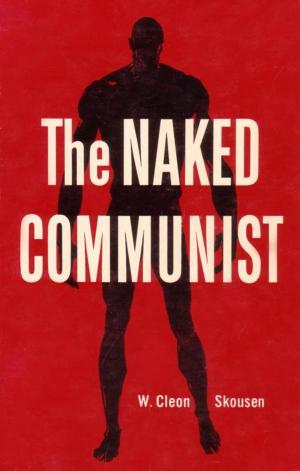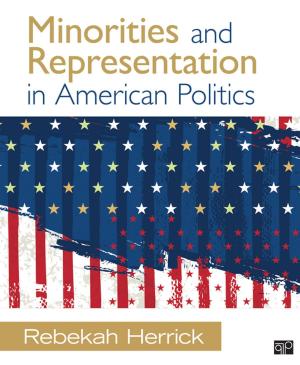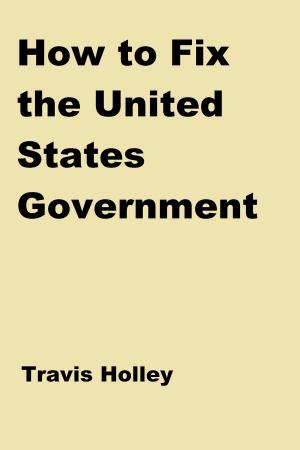Don't Ever Take Away My Freedom!
In Love With An Imperfect Union
Nonfiction, Social & Cultural Studies, Political Science| Author: | Thomas Patrick Locke | ISBN: | 9780985032500 |
| Publisher: | SVWorld LLC | Publication: | December 27, 2011 |
| Imprint: | Language: | English |
| Author: | Thomas Patrick Locke |
| ISBN: | 9780985032500 |
| Publisher: | SVWorld LLC |
| Publication: | December 27, 2011 |
| Imprint: | |
| Language: | English |
A compelling and refreshing look at our founding documents and what we stand to lose if we fail to remember our heritage. Locke doesn’t buy into labels: left or right, liberal or conservative. He is honest, compassionate and practical while maintaining a good sense of humor. Through the magnifying glass of the Declaration of Independence and the Constitution, Locke looks at government, politics, racism and bigotry, business and the economy, immigration, elections, entitlements and a host of pressing issues. Whether you consider yourself “liberal” or “conservative” or “progressive” or “independent” or “libertarian” this is a must read for anyone who truly cares about our country and its people. Perfect for individual contemplation, group discussion or classroom discourse! Among the questions considered: The founders were clear that they believed that God existed and had a central role in the concept of liberty. That they so often respectfully reference this higher power cannot be disputed. Were they wrong? What does the phrase “pursuit of happiness” mean? Do you think that the majority of the founders who were against slavery did the right thing in giving in to the minority that wanted to preserve it? If they hadn’t, what do you think would have happened? Do you think our governments today have the full “consent of the governed?” How could people who understood their own need for freedom be such hypocrites when it came to Africans and Native Americans? How should we think regarding immigration? The issue of term limits has often debated in recent years. The Constitution does not place any limits. Do you think term limits are a good idea? If so, what should the limits be? Is our tax system today completely Constitutional? Should the Electoral College be retained? What is the difference between a Republic and a Democracy? Was the 9/11 attack a sufficient act of war to justify a military campaign against terrorists and any who support them? What do you think should be the overriding criteria in selecting Justices, especially those on the Supreme Court? Should justices have lifetime appointments? Do you think our government today oversteps its Constitutional role? Government has been steadily increasing its involvement in nearly every facet of our lives. Is this healthy or dangerous? Do you think a crèche or menorah on the grounds of a government building is acceptable? What exactly constitutes freedom of speech? What weapons are covered under the Second Amendment? Should all weapons be registered? Should information stored on your computer or cell phone be considered among your “papers and effects” and protected under the Fourth Amendment? Does “secure in person” include protection of private communications we send by email, social networks or cell phones? Should these not be as private as personal letters sent thought the U.S. Postal Service? Does the government use the tax system in unfair ways to invade our privacy? Do you think that non-citizens should, in general, be afforded all the same rights as citizens? The right to sue is apparent. But are there too many lawsuits today and should they be limited somehow without violating the Seventh Amendment? If a state is at fault for injury to a private citizen, should that citizen be able to seek compensation in the courts? Why did it take so long to deal with issues of slavery? And why even after the Thirteenth Amendment was passed did people continue to persecute and abuse former slaves? Some might say passage the Twenty-Sixth Amendment paved the way to the fiscal mess we are in today. Do you think it is time for a tax revolt? Do the tax systems need a total overhaul? Was the temperance movement right? Should it be resurrected to address moral issues today? How similar is the prohibition of marijuana to the prohibition of alcohol? Should a lame duck President be allowed to issue last-minute pardons for criminals? Should there be lame duck limitations on Presidential and Congressional appointments and legislation? Do you think term limits should be imposed on Congress? Do you think that equal opportunity is a reality for the majority of people in the USA? If it isn’t a reality for some, who are they and why are they not experiencing it? Do you take your freedom for granted? What 12 actions can we take to preserve our freedom?
A compelling and refreshing look at our founding documents and what we stand to lose if we fail to remember our heritage. Locke doesn’t buy into labels: left or right, liberal or conservative. He is honest, compassionate and practical while maintaining a good sense of humor. Through the magnifying glass of the Declaration of Independence and the Constitution, Locke looks at government, politics, racism and bigotry, business and the economy, immigration, elections, entitlements and a host of pressing issues. Whether you consider yourself “liberal” or “conservative” or “progressive” or “independent” or “libertarian” this is a must read for anyone who truly cares about our country and its people. Perfect for individual contemplation, group discussion or classroom discourse! Among the questions considered: The founders were clear that they believed that God existed and had a central role in the concept of liberty. That they so often respectfully reference this higher power cannot be disputed. Were they wrong? What does the phrase “pursuit of happiness” mean? Do you think that the majority of the founders who were against slavery did the right thing in giving in to the minority that wanted to preserve it? If they hadn’t, what do you think would have happened? Do you think our governments today have the full “consent of the governed?” How could people who understood their own need for freedom be such hypocrites when it came to Africans and Native Americans? How should we think regarding immigration? The issue of term limits has often debated in recent years. The Constitution does not place any limits. Do you think term limits are a good idea? If so, what should the limits be? Is our tax system today completely Constitutional? Should the Electoral College be retained? What is the difference between a Republic and a Democracy? Was the 9/11 attack a sufficient act of war to justify a military campaign against terrorists and any who support them? What do you think should be the overriding criteria in selecting Justices, especially those on the Supreme Court? Should justices have lifetime appointments? Do you think our government today oversteps its Constitutional role? Government has been steadily increasing its involvement in nearly every facet of our lives. Is this healthy or dangerous? Do you think a crèche or menorah on the grounds of a government building is acceptable? What exactly constitutes freedom of speech? What weapons are covered under the Second Amendment? Should all weapons be registered? Should information stored on your computer or cell phone be considered among your “papers and effects” and protected under the Fourth Amendment? Does “secure in person” include protection of private communications we send by email, social networks or cell phones? Should these not be as private as personal letters sent thought the U.S. Postal Service? Does the government use the tax system in unfair ways to invade our privacy? Do you think that non-citizens should, in general, be afforded all the same rights as citizens? The right to sue is apparent. But are there too many lawsuits today and should they be limited somehow without violating the Seventh Amendment? If a state is at fault for injury to a private citizen, should that citizen be able to seek compensation in the courts? Why did it take so long to deal with issues of slavery? And why even after the Thirteenth Amendment was passed did people continue to persecute and abuse former slaves? Some might say passage the Twenty-Sixth Amendment paved the way to the fiscal mess we are in today. Do you think it is time for a tax revolt? Do the tax systems need a total overhaul? Was the temperance movement right? Should it be resurrected to address moral issues today? How similar is the prohibition of marijuana to the prohibition of alcohol? Should a lame duck President be allowed to issue last-minute pardons for criminals? Should there be lame duck limitations on Presidential and Congressional appointments and legislation? Do you think term limits should be imposed on Congress? Do you think that equal opportunity is a reality for the majority of people in the USA? If it isn’t a reality for some, who are they and why are they not experiencing it? Do you take your freedom for granted? What 12 actions can we take to preserve our freedom?















